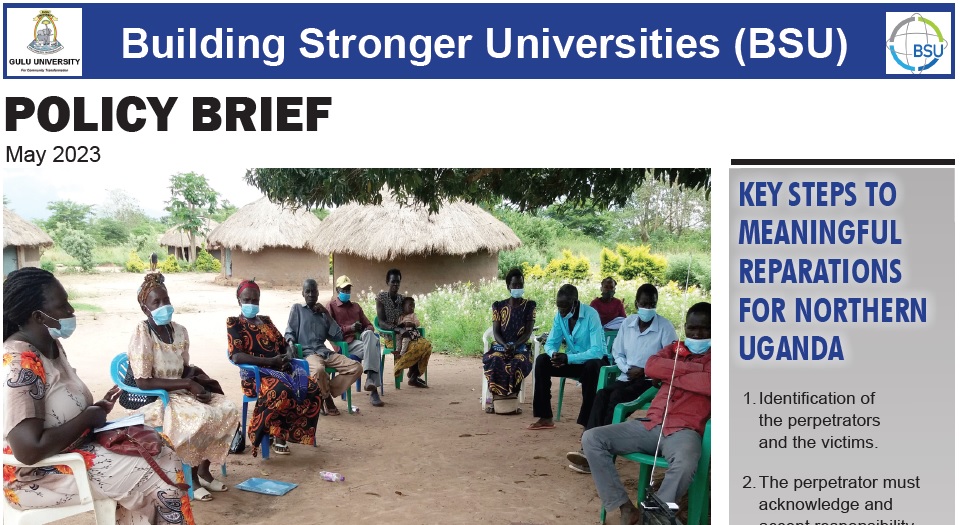Researchers at Gulu University have outlined nine key steps which should be followed if compensation of war victims of Northern Uganda is to be meaningful.
In a policy brief titled Meaningful Reparation for Northern Uganda, the researchers say that the approach currently being pursued by the International Criminal Court (ICC) “will not benefit all the victims of the LRA [Lord’s Resistance Army] conflict”.
The policy brief, published in May 2023, is based on research they conducted in 2022, in Acholi sub-region, in and around the five selected massacre sites of Atiak, Odek, Lukodi, Opota, and Mucwini.
The key steps include identification of the perpetrators and the victims, perpetrators acknowledging and accepting responsibility, and victims’ compensation being led by the perpetrators, not a third party such as the Government or the ICC.
In other steps, the researchers state that community compensation should be in terms of social infrastructure, government development projects and programmes should not constitute compensation, only after the compensation should reconciliation be made, custodians of the Acholi culture should play a leading role in the processes, all processes must be conscious of gender, and once harmony is restored, leaders (government, NGO, cultural, spiritual should deliberately organize communities to achieve peaceful co-existence and socio-economic transformation.







